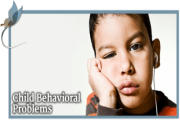Behavioral And Emotional Problems Associated With Convergence Insufficiency in Children

Eric Borsting;G. Lynn Mitchell;L. Eugene Arnold;Mitchell Scheiman;Christopher Chase;Marjean Kulp;Susan Cotter
CITT-RS Group5
1Marshall B. Ketchum University, Fullerton, CA, USA
2The Ohio State University, Columbus, OH, USA
3Salus University, Philadelphia, PA, USA
4Western University of Health Sciences, Pomona, CA, USA
5Convergence Insufficiency Treatment Trial–Reading Study group
Eric Borsting, Southern Califorina College of Optometry at Marshall B. Ketchum University, 2575 Yorba Linda Blvd., Fullerton, CA 92831, USA. Email: [email protected]
ABSTRACT
Objective: This study investigated behavioral and emotional characteristics of children with convergence insufficiency (CI), before and after treatment with office-based vergence accommodative therapy (OBVAT). Method: Parents of 44 children ages 9 to 17 years with symptomatic CI completed the Conners 3 ADHD Index and the Child Behavior Checklist (CBCL) before and after OBVAT. Pre-treatment scores were compared with normative data and post-treatment scores were compared with baseline using the Wilcoxon sign rank test. Results: Following OBVAT, CI children showed a significant mean improvement (p < .0001, effect size of 0.58) on the Conners 3 ADHD Index with the largest changes occurring in the 23 children who scored the highest at baseline. On the CBCL, anxious/depressed, somatic, and internalizing problems improved significantly (p < .001, effect sizes of −0.36, −1.15, and −0.67, respectively). Conclusion: In an open trial, attention and internalizing problems improved significantly following treatment for Convergence insufficiency .


